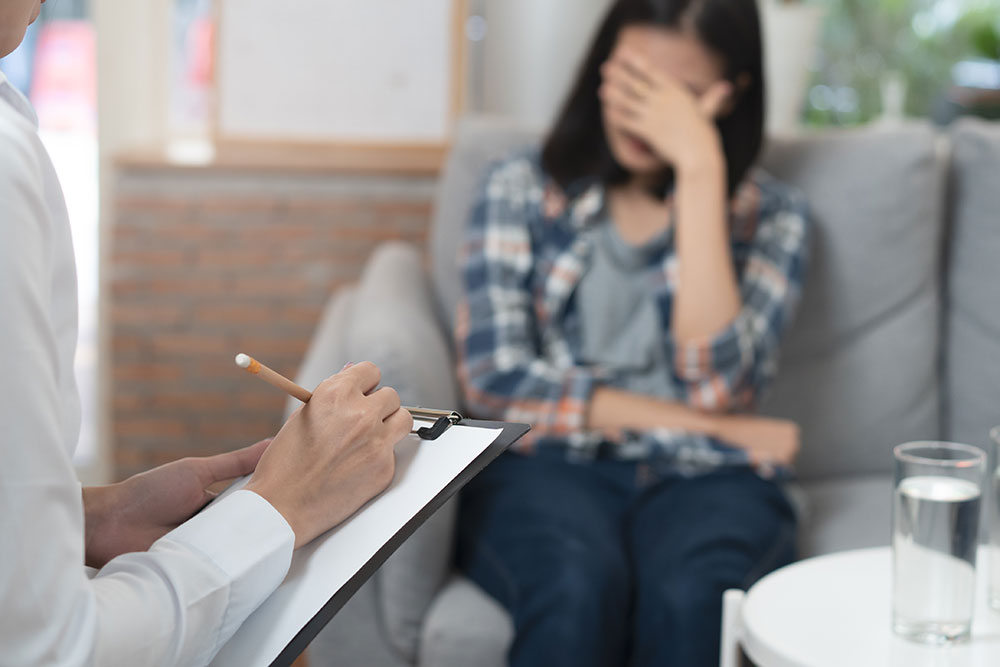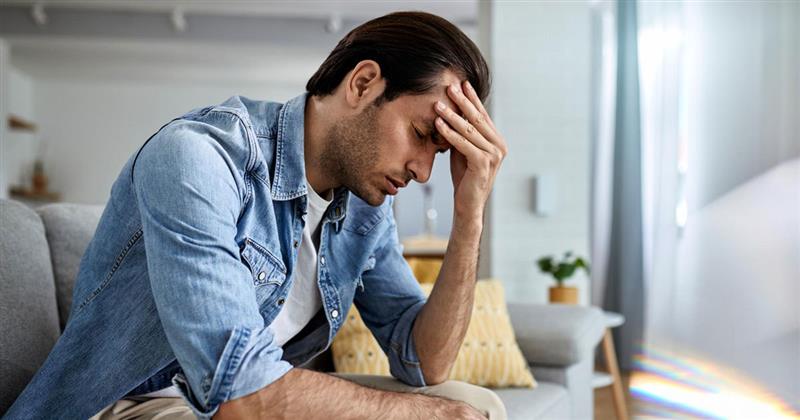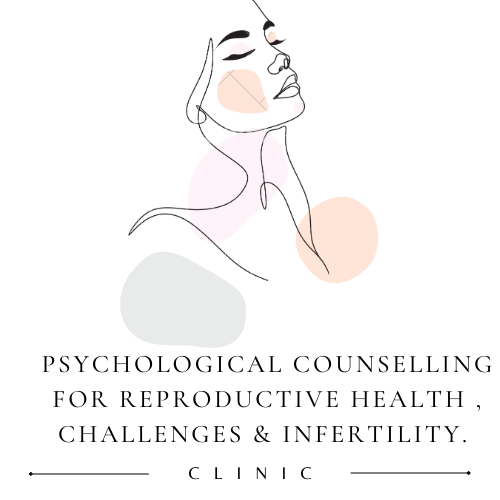
ANXIETY DISORDERS & TREATMENTS
At the Clinic for Psychological Counselling on Reproductive Health & Challenges, we specialize in diagnosis, evaluation and treatments for anxiety disorders. We extend ourselves as competent, compassionate, ethical and caring mental health specialists whose strive for excellence in patient care, community wellness and medical research. At our clinic, specialists from different interdisciplinary fields come together for treatments of all forms of anxiety and anxiety disorders , in a dedicated fashion to design a better life for people and their families.
Given below is a brief descriptive of the nature, various types, causes and treatments for anxiety disorders available at our mental heath centre in Udaipur.
What is an anxiety disorder?
An anxiety disorder is a type of mental health condition. If you have an anxiety disorder, you may respond to certain things and situations with fear and dread. You may also experience physical signs of anxiety, such as a pounding heart and sweating.
It’s normal to have some anxiety. You may feel anxious or nervous if you have to tackle a problem at work, go to an interview, take a test or make an important decision. Some anxiety can even be beneficial — it helps us notice dangerous situations and focuses our attention so we stay safe.
But an anxiety disorder goes beyond the regular nervousness and slight fear you may feel from time to time.
An anxiety disorder happens when:
- Anxiety interferes with your ability to function.
- Your reactions are often out of proportion to situations (overreactions).
- You can’t control your responses to situations.
- Children, adolescents and adults can experience anxiety disorders. Women are about twice as likely as men to have one.
Anxiety disorders can make it difficult to get through the day. Fortunately, there are several effective treatments for these conditions. So , You don’t need to live with constant worry and fear. If you notice symptoms of an anxiety disorder, talk to a healthcare provider or mental health clinic or mental health physician (psychologist/psychiatrist/counsellor/child specialist near you) .
We at PCRH can help you, to get diagnosed and treated as soon as possible for anxiety related conditions. Doing so can limit the problems that anxiety disorders can cause. Often, a combination of medications and counseling for anxiety can help you feel your best.

Some types of anxiety disorders
There are several types of anxiety disorders. Some common types of anxiety disorders include:
- Generalized anxiety disorder (GAD): This condition causes fear, worry and a constant feeling of being overwhelmed. It’s characterized by excessive, frequent and unrealistic worry about everyday things, such as job responsibilities, health or chores. We specialize in treatment of generalized anxiety.
- Agoraphobia: This condition causes an intense fear of becoming overwhelmed or unable to escape or get help. People with agoraphobia often avoid new places and unfamiliar situations, like large, open areas or enclosed spaces, crowds and places outside of their homes. We specialize in treatment of agoraphobia.
- Panic disorder: This condition involves multiple unexpected panic attacks. A main feature of the condition is that the attacks usually happen without warning and aren’t due to another mental health or physical condition. Some people with panic disorder also have agoraphobia. We specialize in treatment of panic attacks and panic disorder.
- Specific phobias: A phobia is when something causes you to feel fear or anxiety that’s so severe it consistently and overwhelmingly disrupts your life. There are hundreds of different types of phobias, and there’s one diagnosis for almost all of them: specific phobia. Only one phobia, agoraphobia, is a distinct diagnosis.
- For medical advice or a diagnosis, we need to consult a mental health professional /doctor for same. We specialize in treatment of all types of phobias and extreme fear related disorders.
- Social anxiety disorder: This condition (formerly known as social phobia) happens when you experience intense and ongoing fear of being judged negatively and/or watched by others. We specialize in treatment of social anxiety.
- Separation anxiety disorder: This condition happens when you feel excessive anxiety when you’re separated from a loved one, like a primary caregiver. While separation anxiety in babies and toddlers is a normal stage of development, separation anxiety disorder can affect children and adults. We specialize in treatments of all forms of separation anxiety disorder.
- Selective mutism: This condition happens when you don’t talk in certain situations because of fear or anxiety. It usually affects young children, but it can also affect adolescents and adults. Other mental health conditions share features with anxiety disorders. Selective mutism is treatable and our team of mental health experts can help you in same.
- Post-traumatic stress disorder (PTSD): Post-Traumatic Stress Disorder (PTSD) is a mental health condition that can develop after experiencing a traumatic event, such as combat, abuse, a natural disaster, or a serious accident, relational trauma or psychological torture. Symptoms include intrusive memories (like flashbacks and nightmares), avoidance of reminders of the event, and changes in mood, thinking, and reactivity, such as being constantly on edge or easily startled. For a diagnosis, symptoms must last for more than a month and cause significant distress or impairment in daily functioning. Treatment typically involves psychotherapy, trauma counselling, psychological first aid /crisis interventions and medication may also be used. We offer best treatments for Post-traumatic stress disorder (PTSD) in Udaipur.
- Acute stress disorder : Acute Stress Disorder (ASD) is a temporary psychological reaction to a traumatic event, with symptoms appearing within a month and lasting for at least three days and no more than four weeks. Symptoms include intrusion (flashbacks), avoidance, negative mood, dissociative symptoms (like numbness or feeling detached), and hyperarousal. If these symptoms persist for longer than a month, it may also lead to post-traumatic stress disorder. We offer treatments for all forms of acute stress disorders in Udaipur.
- Obsessive-compulsive disorder (OCD): OCD, or obsessive-compulsive disorder, is a mental health disorder characterized by intrusive thoughts (obsessions) and repetitive behaviors (compulsions) that an individual feels driven to perform to relieve anxiety. These symptoms consume significant time, cause considerable distress, and interfere with daily life. We offer best treatments for all forms of OCD in Udaipur.
There are many types of phobias, but here are 20 common examples: Acrophobia (heights), Aerophobia (flying), Aichmophobia (needles), Aquaphobia (water), Arachnophobia (spiders), Astraphobia (thunder/lightning), Autophobia (being alone), Bacteriophobia (bacteria), Claustrophobia (enclosed spaces), Cynophobia (dogs), Emetophobia (vomiting), Glossophobia (public speaking), Hemophobia (blood), Mysophobia (germs), Necrophobia (death), Ophidiophobia (snakes), Social Phobia (social situations), Trypanophobia (injections), Zoophobia (animals), and Agoraphobia (inescapable situations).

CAUSES OF ANXIETY DISORDERS
Anxiety disorders result from a complex combination of genetic predisposition, brain chemistry, significant life stressors, trauma, certain personality traits, and other medical or mental health conditions. Risk factors like family history of anxiety, childhood experiences of abuse or loss, and chronic illness can increase vulnerability, while environmental factors, substance use, and even certain medications can also trigger or worsen anxiety.
Genetics:
A family history of anxiety or other mental disorders can increase your likelihood of developing an anxiety disorder.
Brain Chemistry:
An imbalance in brain chemicals, such as those involved in regulating the nervous system, can play a role in anxiety.
Physical Health Conditions:
Certain physical illnesses, like heart problems or thyroid issues, can contribute to anxiety symptoms.
Traumatic Events and life events:
Experiencing or even witnessing traumatic events, such as abuse, accidents, or disasters, increases the risk of developing an anxiety disorder later in life.
Psychosocial and Childhood Experiences:
Difficult childhood experiences, including abuse, neglect, or separation from caregivers, can be significant risk factors.
Personality Traits:
Certain personality traits, such as being shy, withdrawn, or having a tendency to worry excessively, may make someone more prone to anxiety disorders.
Other Mental Health Disorders:
Anxiety disorders often co-occur with other conditions like depression. Environmental & Lifestyle Factors
Stressful Life Events:
Major life changes, ongoing high-stress situations (like financial problems or work-related stress), or the buildup of smaller stressful events can trigger anxiety.
Substance Use:
Drug or alcohol use or misuse, including withdrawal from substances, can cause or exacerbate anxiety.
Certain Medications:
Some medicine can also trigger anxiety like symptoms.
Management and Treatment
The two main treatments for all forms of anxiety disorders are psychotherapy (individual , group and family) and medications. You may benefit most from a combination of the two. Doctors advise, experience and evidenced based research and scientific methods help us discover which treatments work best for you.
How are anxiety disorders treated?
An anxiety disorder is like any other health condition that requires treatment. You can’t will it away. It’s not a matter of self-discipline or attitude. Researchers have made a lot of progress in the last few decades in treating mental health conditions. Your healthcare provider will tailor a treatment plan that works for you. Your plan may include a combination of medication and psychotherapy (talk therapy).
Medication for anxiety disorders
Medications help cure an anxiety disorder. They can improve the symptoms and help you function better. Medications for anxiety disorders often include:
- • Antidepressants: While they mainly treat depression, these medications can also help with anxiety disorders. They adjust how your brain uses certain chemicals to improve mood and reduce stress. Antidepressants may take some time to work, so try to be patient. SSRIs and SNRIs are the go-to types of antidepressants for anxiety. Tricyclic antidepressants are another option, but they cause more side effects.
- • Benzodiazepines: This class of medications may decrease your anxiety, panic and worry. They work quickly, but you can build up a tolerance to them. They also have addiction potential, so you have to take them cautiously. Your healthcare provider may prescribe a benzodiazepine for the short term, then taper you off. Benzodiazepines that can help treat anxiety disorders include alprazolam, clonazepam, diazepam and lorazepam.
- • Beta-blockers: These medications can help reduce some of the physical symptoms of anxiety disorders, like rapid heartbeat, shaking and trembling. They don’t treat the psychological aspects of anxiety disorders.
Your healthcare provider will work with you to find the right medication combination and dosage. Don’t change the dose or stop taking medications without talking to your provider first. They’ll monitor you to make sure the medicines are working without causing negative side effects. Talk with your doctor and seek a mental health consultation about benefits, risks and possible side effects of medications.
We at PCRH can help you, to get diagnosed and treated as soon as possible for anxiety related conditions. Doing so can limit the problems that anxiety disorders can cause. Often, a combination of medications and counseling for anxiety can help you feel your best.
Psychotherapy for anxiety disorders
“Psychotherapy,” also called talk therapy, is a term for a variety of treatment techniques that aim to help you identify and change unhealthy emotions, thoughts and behaviors. A mental health provider talks through strategies to help you better understand and manage an anxiety disorder. Approaches include:
- Cognitive behavioral therapy (CBT): This is the most common type of psychotherapy to help manage anxiety disorders. CBT for anxiety teaches you to recognize and identify thought patterns and behaviors that lead to troublesome feelings. You then work on changing the thoughts and your reactions to triggering situations.
- • Behavior therapy: This is a type of therapy in which a mental health provider creates a safe environment to expose you to your fears. Fears may be things, situations and/or activities. Exposure therapy is one type of behavior therapy that helps show you that you’re capable of confronting your fears. You’ll learn to attach new, more realistic beliefs to the things you’re afraid of. You’ll become more comfortable with the experience of fear.
Care at our Mental health Clinic in Udaipur
At PCRH clinic, experts in neurosciences, psychiatry and psychology services use a team approach to evaluate and diagnose your anxiety disorder. These compassionate psychiatrists, psychologists and other mental health /allied professionals listen patiently to thoroughly understand your concerns and health issues to create a treatment plan suited to your needs.
Division of Integrated Behavioral Health provides comprehensive assessment, diagnosis and treatment for adult and pediatric /adult /oldage anxiety disorders within a special care setting. These services are available to patients who receive their primary care at our mental health Clinic. Mental health providers work collaboratively with primary care teams to help individuals and families connect to the right level of care to enhance treatment outcomes for anxiety disorders.
Anxiety disorders can affect your life in many ways. PCRH Clinic / mental health experts can help you manage anxiety so you’re back in control.





Talks by Dr Ansha Patel & Dr Rahul Taneja on:
Client Feedbacks
Thank you doctor ansha... Mujhe bhot accha lga aapse consult karke.... Bhot safe, secure, peaceful feeling hoti h every session ke bad... Ek special feeling h aapse bat karne pr lgta h kisi family member se hi bat kr rahi hu (like a elder sister)
Very good dr and polite and i have so much problems dr ansha is helping me a lot and i am very happy and day by day its improving my mental health and all over personality. Thank you dr ansha
Thank you Mam for such an excellent webinar. Very informative and helpful to learn new ideas and also interventions.
